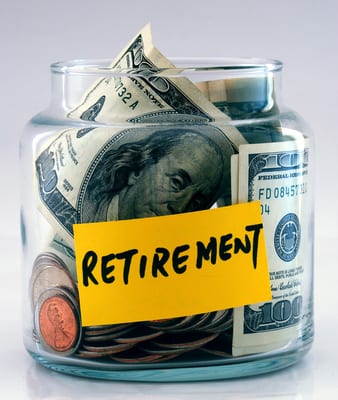
We all want to save for retirement, but there never seems to be enough money left over to save. Does this sound familiar?
The first rule of saving for retirement is, if you are offered free money take it. If your employer sponsored retirement plan offers you matching funds, take it. Contributing to a retirement plan through your paycheck is a great way to get started on the path of regular automatic saving. The earlier you start this habit the better off you will become. On the other side if you haven’t done this, it’s never too late to start now. In this case, free money is a good thing
Next you want to manage your debt. Debt is the enemy to your budget, so you want to avoid it at all cost. I am not saying don’t borrow or use credit, what I am saying is to use it wisely. Don’t become a slave to your debt and that you live paycheck to paycheck trying to keep up with your debt payments.
Charge wisely and only amounts that you can pay off easily. If you find yourself with an emergency and you have to borrow money, evaluate your options and make the choice that is best for you and your budget. Pay back the debt as quickly as possible to avoid as much of the finance / interest charges as possible.
Lastly, gratification – are you someone who needs instant gratification? Do you buy without a payback plan? Look at the food cost (groceries, dining out, take out etc.), shopping, memberships, entertainment etc. These are the expenses, that where the instant gratification that can harm your budget. These are the first defense against the leaks in your budget. Plug those holes to have more money for your retirement.
Think about your finances then make a plan to implement these strategies one by one. Once you master one, start the next. Remember that your finances will not change overnight, be patient and remember it takes time.









 It is so important to prepare for retirement. It really is better to put aside money now so you can have those happy golden years later.
It is so important to prepare for retirement. It really is better to put aside money now so you can have those happy golden years later.